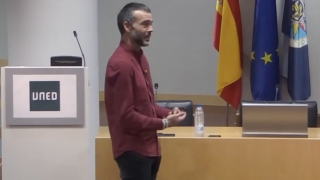
The efficient compensation of load disturbances is one of the most important tasks in any control system. Most industrial processes are affected by disturbances and only feedback is commonly used to reduce their effects. However, when disturbances are measurable, feedback can be inefficient to reject them because of the reactive behavior of the control loop. So, feedforward control approaches provide a very simple solution to improve the disturbance rejection effect since the feedforward control contribution is injected before affecting the process output. In fact, under perfect situations, the disturbance effect can be completely removed. Nevertheless, and in spite of the well-known advantages of the feedforward control schemes, there are not many turning methods in literature, especially when the feedforward compensator is not realizable.
Thus, this talk presents several contributions to improve the feedforward control approaches when inversion problem arise: the ideal compensator may not be realizable due to negative delay, having more zeros than poles, poles in the right-half plane, or in general non-minimum phase behaviours. New tuning rules will be presented for most of these situations when a PID controller is combined within a feedforward control scheme. Moreover, a robust design methodology for simultaneous feedback and feedforward tuning will be shown. Finally, new performances indexes are described to determine the contribution of typical feedforward schemes in literature.
